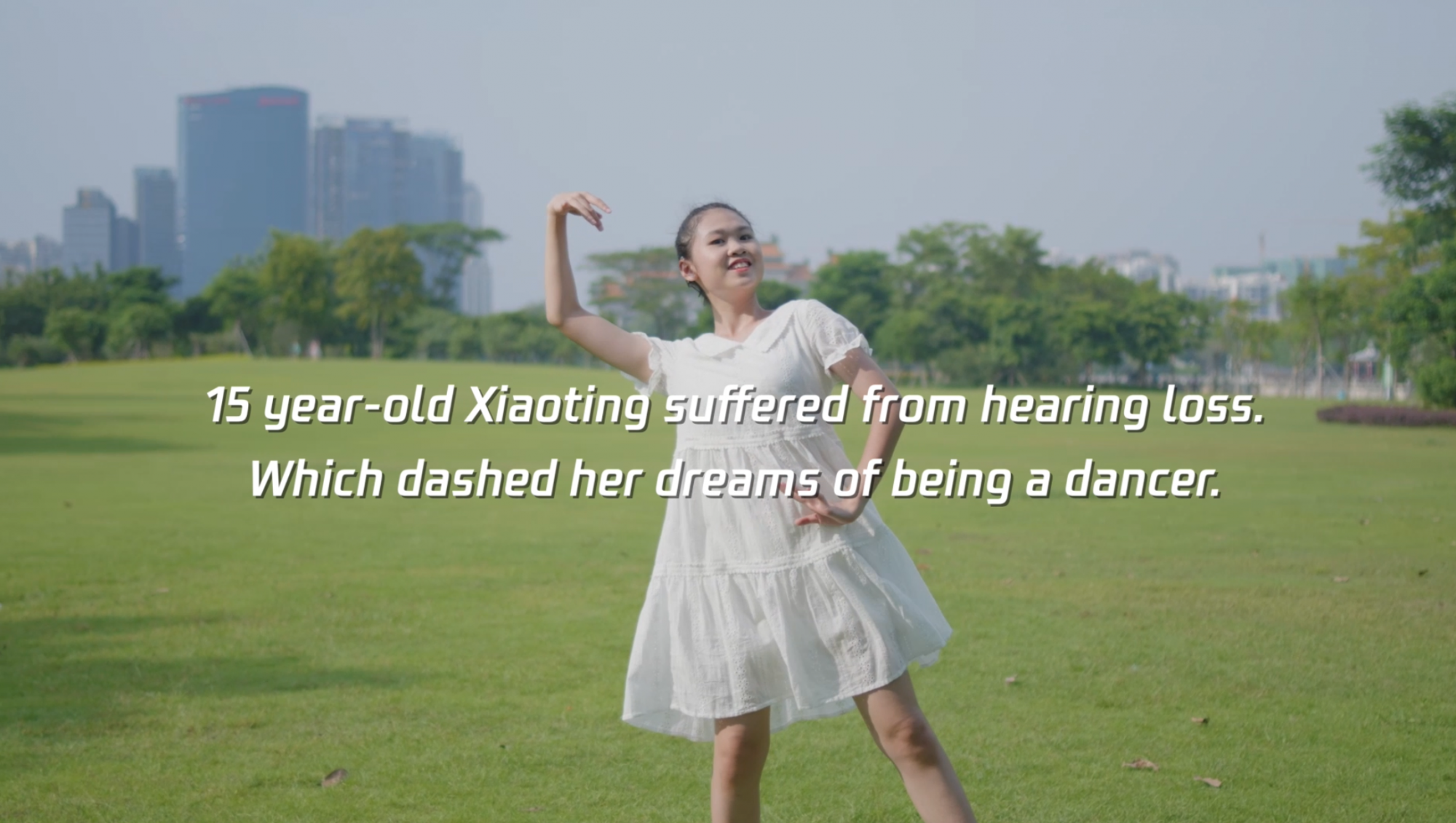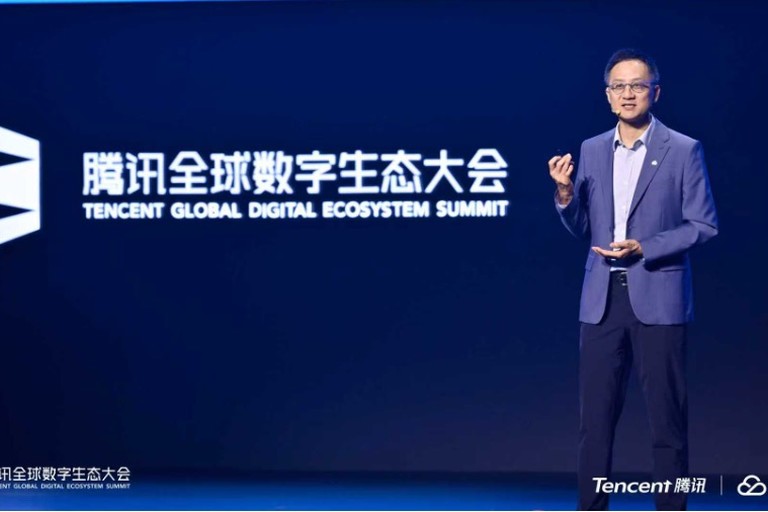How AI Technology Can Help People Suffering from Hearing Loss
Imagine living in a world without sound — no sound of birds chirping in the morning or the comforting voices of close family members. It’s something that affects a large number of people worldwide, including a young girl in China named Xiaoting.
Xiaoting, 15, has wanted to be a dancer since she was a child, a big challenge for a girl with a hearing difficulty. Because she couldn't hear the music well, she was unable to follow the rhythm. She had previously received a cochlear implant, but it still wasn’t enough for Xiaoting to properly distinguish between different sounds.
Fortunately for her, technology is able to help and give her a chance to fulfill her dreams. Tencent has partnered with Nurotron, one of the largest cochlear implant manufacturers in China, to launch Tencent Ethereal Audio. TEA improves the auditory experience of people with hearing difficulties through an AI noise-reduction algorithm, which enables them to clearly hear the world around them.
With TEA, Xiaoting is now able to hear music more clearly, enabling her to dance to the beat for the first time. "Now that she can truly hear, there's a sparkle in her eyes," said Xiaoting's mother. "We can all tell the difference. She's more cheerful and confident now."

Xiaoting, 15, is part of the Tencent Ethereal Audio program, which enables her to hear the world around her and focus on fulfilling her dream as a dancer.
Project TEA: AI-Assisted Hearing
Around 1.1 billion people aged 12 to 35 worldwide are at risk of hearing loss, while roughly 466 million people have some form of hearing difficulty, according to data released by the World Health Organization. Cochlear implants have proven to be a popular treatment, but they have some drawbacks, such as making it difficult to hear specific sounds in noisy environments like airports and shopping malls.
Tencent Media Lab, Tencent Foundation and the Shenzhen Information Accessibility Research Association jointly launched Project TEA and provide the technology free of charge to nonprofit developers, device manufacturers and the public service sector to address the noise-reduction problem in cochlear implants and improve the wearer's user experience. The project also aims to raise awareness of the physical and mental rehabilitation needs of people affected by hearing loss and build an accessible environment for them.
Shidong Shang, the Senior Director of Tencent Media Lab, has devoted more than 20 years to audio technology. He began exploring a solution with Nurotron to address the problems with cochlear implants, and six months later settled on a solution called “mobile companion + cochlear implant," a joint solution which can enhance the clarity and intelligibility of speech by 40 percent.
A key component of the solution is the wearer’s mobile phone. “First, the mobile phone preprocesses the speech signals captured with its powerful processing capacity,” Shang said. “Speech is enhanced through a variety of technologies to improve the clarity and intelligibility of the speech. The enhanced speech is then sent to the cochlear implant via wireless transmission and is processed by the cochlear implant again. Finally, the auditory nerve is stimulated with improved perception of the speech."
TEA technology and cochlear implants can also accurately identify the surrounding environment, such as an airport or cinema, 96 percent of the time. Even in noisy environments, the technology helps the user identify speech with 93 percent accuracy, and 94 percent in ambient noise conditions.
TEA technology has even played an important role in the global pandemic. It has already been integrated into Tencent Meeting and VooV Meeting (the international version of Tencent Meeting) to reduce background noise during meetings.
Tech for Good Creates a More Accessible World
Tencent is continually seeking ways to apply technology that brings real-world benefits to our users. Science and technology have the power to improve our quality of life in a number of ways, which is why “Tech for Good” sits at the heart of our products and services.
"New technologies such as cloud computing, artificial intelligence and big data have greatly strengthened our understanding of the world, allowing us to see more, hear more and think more," said Dowson Tong, senior executive vice president of Tencent and president of the Cloud & Smart Industries Group.
Tencent organized the 99 Giving Day campaign this year, an annual charity event in China. During the campaign, the Tencent Foundation launched the technology-assisted social welfare program, which aims to promote the use of technology in public service projects to tackle social issues, another pertinent example of how technology can be used for good.
Technology has helped Xiaoting realize dreams that she never thought possible and fueled her desire to study computer science in university. Her sunny disposition and determination have inspired others in the community to give back and support others in need. Xiaoting said she is grateful to be able to pursue her dream of becoming a dancer, and wants to help others seeking their dreams, too.
“We have received a lot of assistance, so I am more than happy to devote myself to the community.”
Related Articles

Unlocking AI for All and Bringing Value Within Reach
2026.01.29

Tencent Announces Global Rollout of Scenario-Based AI Capabilities to Accelerate Industrial Efficiency
2025.09.16



